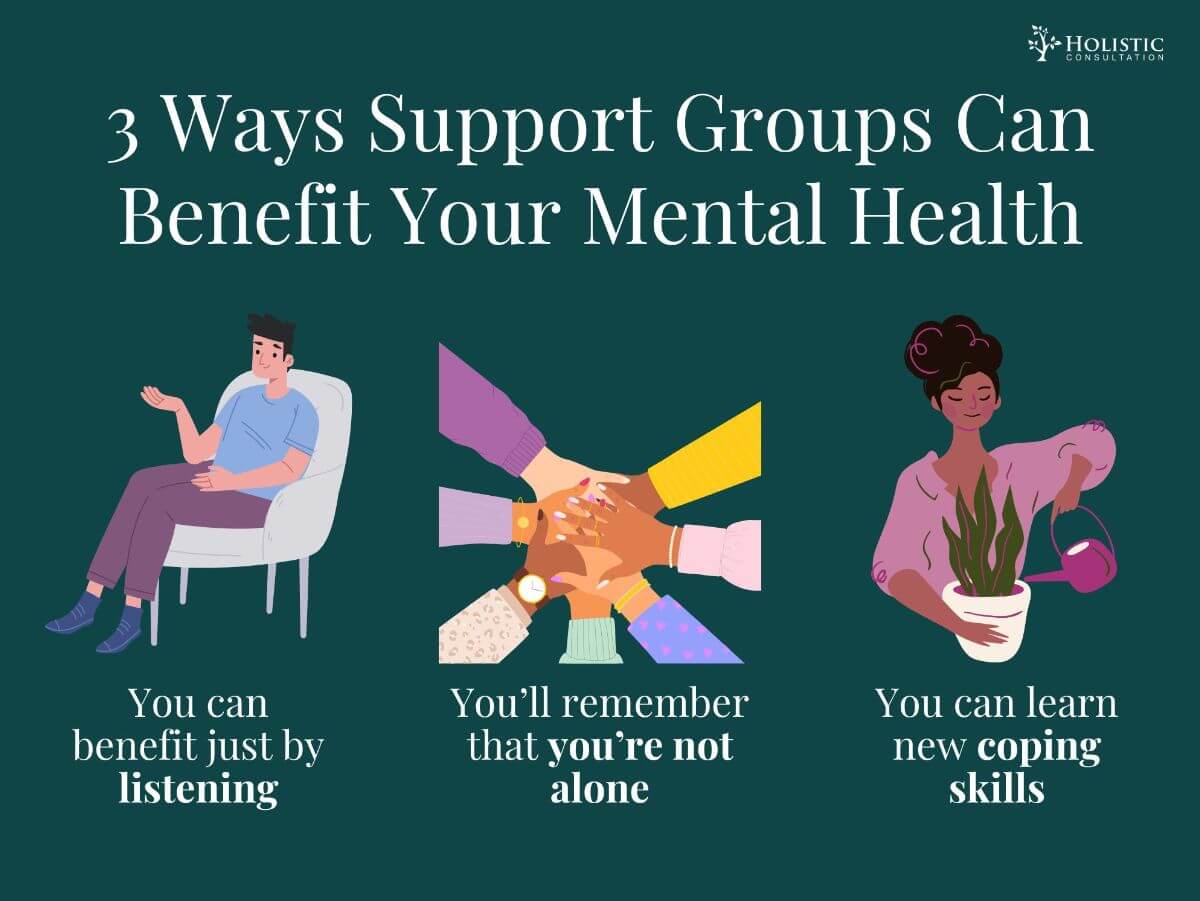What Does Mental Health Counseling Mean?
What Does Mental Health Counseling Mean?
Blog Article
5 Easy Facts About Mental Health Counseling Described
Table of ContentsThe Facts About Mental Health Counseling UncoveredExcitement About Mental Health CounselingThe Mental Health Counseling StatementsThe 7-Minute Rule for Mental Health CounselingSome Known Details About Mental Health Counseling
Via treatment, you can get understanding into your own patterns of behavior and communication, which can result in more fulfilling and pleasing partnerships with good friends, household, and enchanting companions. What we assume, we show up. If you're eaten with unfavorable emotions and negative ideas that are conflicting with your life, treatment can help., or there are various other negative means you behave. Treatment can assist you alter those actions that are having an unfavorable impact on your globe and relationships.

Getting treatment to deal with particular aspects of your life can assist you be more efficient in various other areas, including job.

Mental Health Counseling Things To Know Before You Get This
There are even more benefits of therapy than simply the ones we have actually reviewed., or construct partnerships (enchanting or those with household or good friends) in a healthy and balanced method.
For the objective of the present study, regarded advantages and barriers to mental health help-seeking are being discovered. Previous research study discovered that perceived obstacles have a substantial result on university student' wellness habits options (Von Ah, Ebert, Ngamvitroj, Park & Kang, 2003). Perceived advantages and obstacles to help-seeking were specifically picked because of their influence on decision-making and inevitably activity (Glanz, Rimer, & Su, 2005).
The existing study seeks to check out whether or not stigma serves as a barrier to therapy amongst university students. Among these were: (1) liking to deal with psychological health problems themselves, (2) not having sufficient time to take part in therapy, (3) inquiries about whether mental health and wellness therapy is efficient in remediating troubles, (4) an idea that stress is normal or the problem will get much better without therapy, (5) absence of cash, and (6) stress concerning what others would assume if they located out about therapy involvement.
Staff in university psychological health and wellness centers may be regarded as hostile, and long wait times for services may be "repulsive" for pupils. Aspects helping with much more positive perspectives are commonly at the opposite pole of those variables determined as barriers.
Little Known Questions About Mental Health Counseling.
One in 3 (34.6%) reported surviving on university and one in four (23.3%) reported coping with parents. Almost half of trainees were associated with school companies and 1 in 10 reported being in a society or sorority. Greater than one-third of trainees (38.1%) reported that they had a member of the family or good friend with a diagnosed mental wellness disorder.

How Mental Health Counseling can Save You Time, Stress, and Money.
Univariate F-tests determined certain subscale products that dramatically varied. Ladies were much less most likely than males to view individuals who go to therapy as emotionally weak, people that most likely to counseling as crazy, to feel that individuals with psychological illness need to manage issues by themselves, that individuals who most likely to therapy as unable to resolve problems, that individuals that most likely to counseling are lazy, and to really feel that people that go to counseling are various from typical people in a negative means.
Study results disclosed that females were dramatically less most likely than men to hold stigma-related mindsets. This is regular with previous research which additionally found that men hold greater levels of viewed preconception than females (Chandra & Minkovitz, 2006). Based upon study findings, it i loved this is noticeable that males may be much less likely than women to look for therapy because of reduced regarded barriers in addition to high stigma-related perspectives.
An Unbiased View of Mental Health Counseling
On top of that, university health and wellness specialists might supply curricula targeting men with information on the benefits of mental health therapy and the importance of seeking help when required. All strategies should be evaluated with future research to determine the effect on college students, specifically men. As opposed to basic population research studies which reveal that women are more most likely to choose psychological health and wellness services compared to men (Haunstein et al., 2006; Mackenzie, Gekoski, & Knox, 2006), the here Click Here and now research discovered no considerable differences in the number of regarded obstacles to help-seeking actions based on sex.
This finding was unforeseen and could highlight that those that had obtained counseling had a much better idea of delay times and various other "gain access to" obstacles that may make it hard to begin therapy. Perhaps, individuals that have gotten my link counseling view extra barriers than individuals that have not gotten therapy because looking for therapy services once again could include concern of self-disclosing personal info to a brand-new therapist.
Report this page